Targums Add-on (April 2020): Aramaic, English, and Samaritan Targums, WordMap, Onkelos Glossary, and Stevenson Aramaic Grammar /
Requires Accordance 13.0.3 or above.
This package of Targums study material can be added to any Accordance Collection. It contains the Tagged Aramaic Targums and their translations, the untagged Samaritan Targum, the Targums Wordmap (The Equivalent Project), the Onkelos Glossary, and Stevenson’s Grammar of Palestinian Jewish Aramaic.
Note: Biblia Hebraica with Westminster Hebrew Morph 4 (HMT-W4) is required for Targums WordMap use in parallel with the Torah.
Included Modules
The following modules and groups are included when you purchase this package.
| Category | Code | Title | Price |
|---|---|---|---|
| English Bibles | TARG-E | Targum English Translation | 129.00 |
| Hebrew Bibles | SAMTARG | Samaritan Targum, untagged | 49.90 |
| Hebrew Bibles | TARG-T | Targums Tagged Aramaic | 99.90 |
| Hebrew Lexicons | Onkelos Glossary | Glossary of Targum Onkelos | 59.90 |
| Hebrew Grammars | Stevenson Aramaic | Grammar of Palestinian Jewish Aramaic | 39.90 |
| Semitic Study Tools | Targums.awmap | Targums WordMap (The Equivalent Project) | 149.00 |
| Accessory Modules | TARG-E Notes | TARG-E Notes | N/A |
| Accessory Modules | TARG2-E | TARG2-E | N/A |
| Accessory Modules | TARG2-E Notes | TARG2-E Notes | N/A |
| Accessory Modules | TARG3-E | TARG3-E | N/A |
| Accessory Modules | TARG3-E Notes | TARG3-E Notes | N/A |
| Accessory Modules | TARGF-E | TARGF-E | N/A |
| Accessory Modules | TARGF-E Notes | TARGF-E Notes | N/A |
| Accessory Modules | TARGG-E | TARGG-E | N/A |
| Accessory Modules | TARGG-E Notes | TARGG-E Notes | N/A |
| Accessory Modules | TARG2-T | Targums Tagged Aramaic (second text) | N/A |
| Accessory Modules | TARG2M-T | TARG2M-T | N/A |
| Accessory Modules | TARG3-T | Targums Tagged Aramaic (third text) | N/A |
| Accessory Modules | TARGF-T | TARGF-T | N/A |
| Accessory Modules | TARGG-T | TARGG-T | N/A |
Reviews
-
Here are some examples of inaccurate translation in the Targums English module:
In Gen. 10:10 the phrase “בארעא דבבל” is inaccurately translated as “the land of Shinar.” This should really be translated as “the land of Babylon.” In Gen. 11:2 the exact same Aramaic phrase is correctly rendered as “the land of Babylon.”
If you only read the English translation you will be deceived to think that the Aramaic is the same as the Hebrew is Gen. 10:10, but different in 11:2. But in reality the Aramaic in both these cases interpret the Hebrew text the same way. This inaccuracy means you cannot rely on this translation for study in the Targums.
Here is another example:
Gen. 11:3: The English translation says “let us HEAT them in the fire.” If you read only this English translation you will think that the Aramaic Targum differs from the Hebrew text by using “heat” instead of “burn.” But this is a mistranslation! The Aramaic reads: “וְנִשׂרוֹפִינוּן בְנוּרָא”, which literally means “let us BURN them in the fire” – exactly the same meaning as the Hebrew text. This means you cannot rely on this inaccurate translation if you want to know what the Aramaic targums really says.
My conclusion is that these translations really need to be checked by a second translator, and corrected, before they will be accurate enough for people to study the Targums in English. -
Another inconsistency in the Targums Tagged module is the use of compound Shewa vs. simple Shewa.
In many sections of this module, there is no compound Shewa, only a simple Shewa. In other sections there are many compound Shewas.I’ve checked in Sperber’s original book and in the manuscripts and these manuscripts do not use compound Shewas ever. Thus every compound Shewa in this module is determined by the editors?
This inconsistency makes research difficult and complicated for me.
My suggestion is that you replace every compound Shewa with a simple Shewa, as there are no compound Shewas in the manuscripts. Or, else the system of using compound Shewas on guttural letters should be applied systematically throughout the whole module.
-
In the Targums Tagged module the Aramaic particle ‘Leit’ is always parsed as a particle (not a verb), even when suffixed.
However, in the Targum Neofiti it is parsed as a VERB when a suffix is attached.
I assume this is a mistake or inconsistence that needs to be standardized. Otherwise the cross textual searching will be inaccurate.


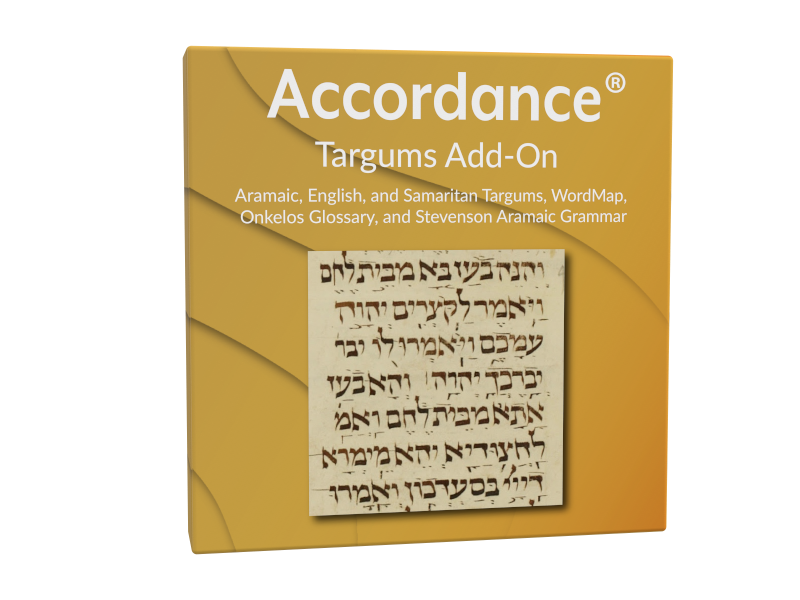
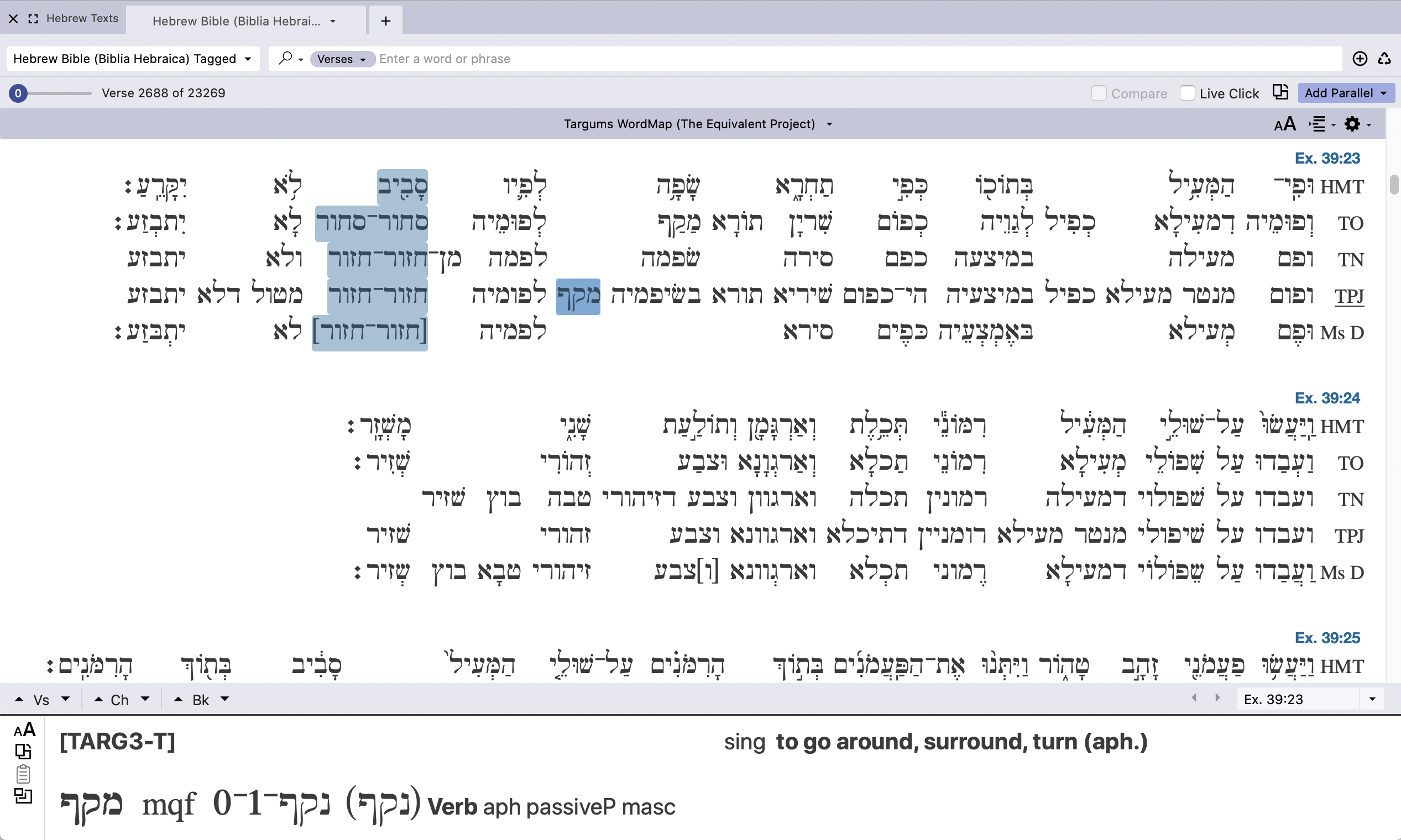
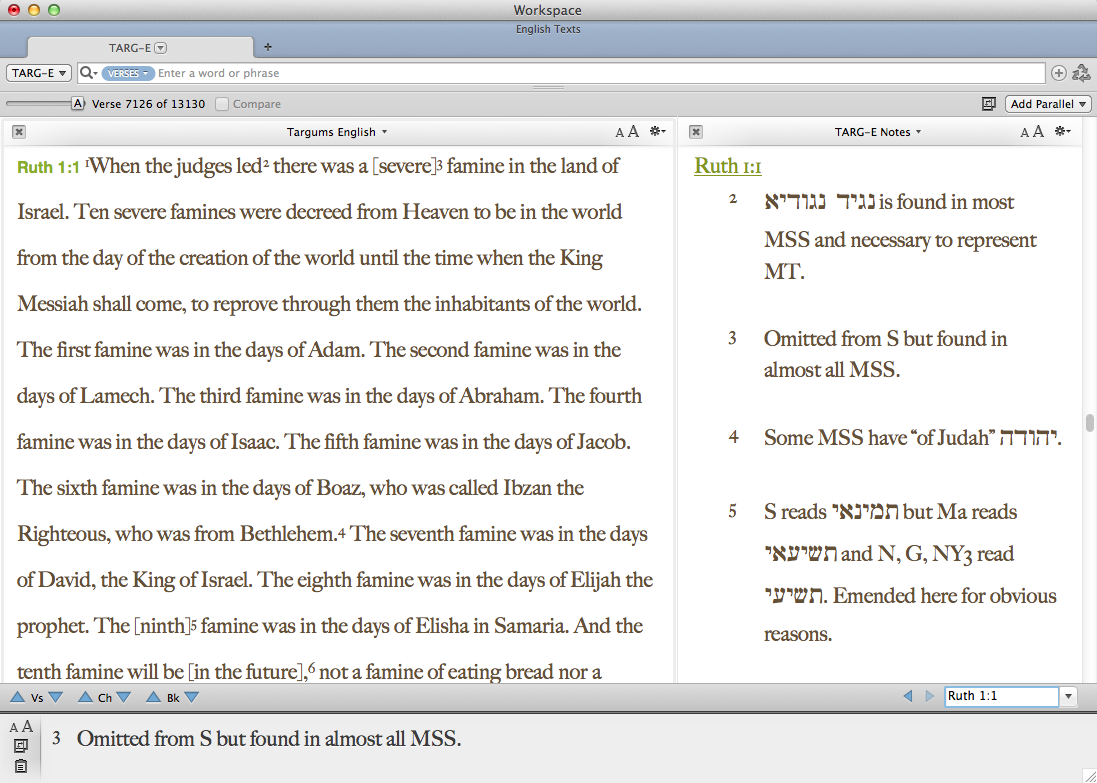
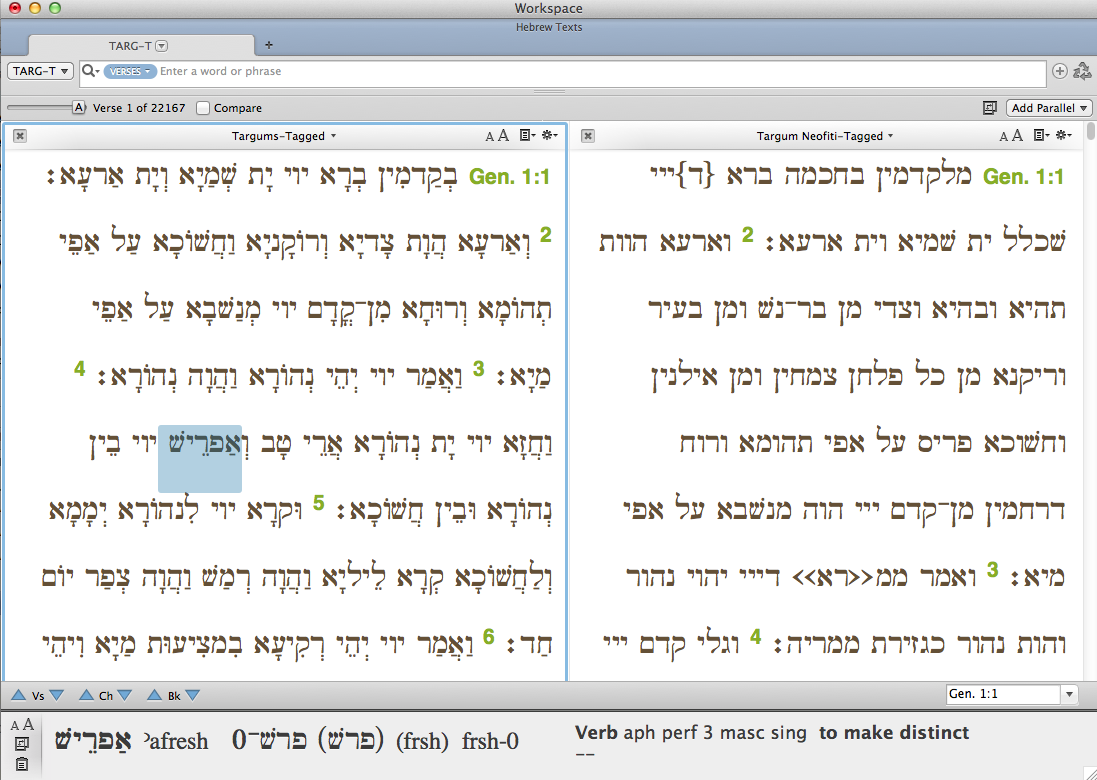

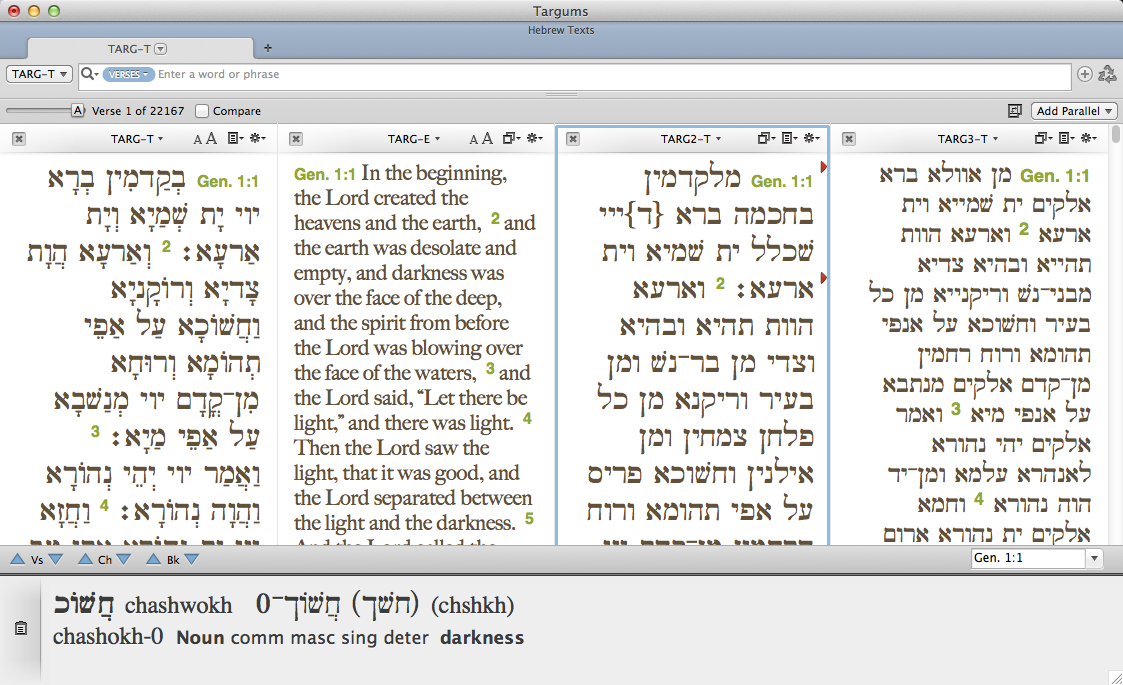
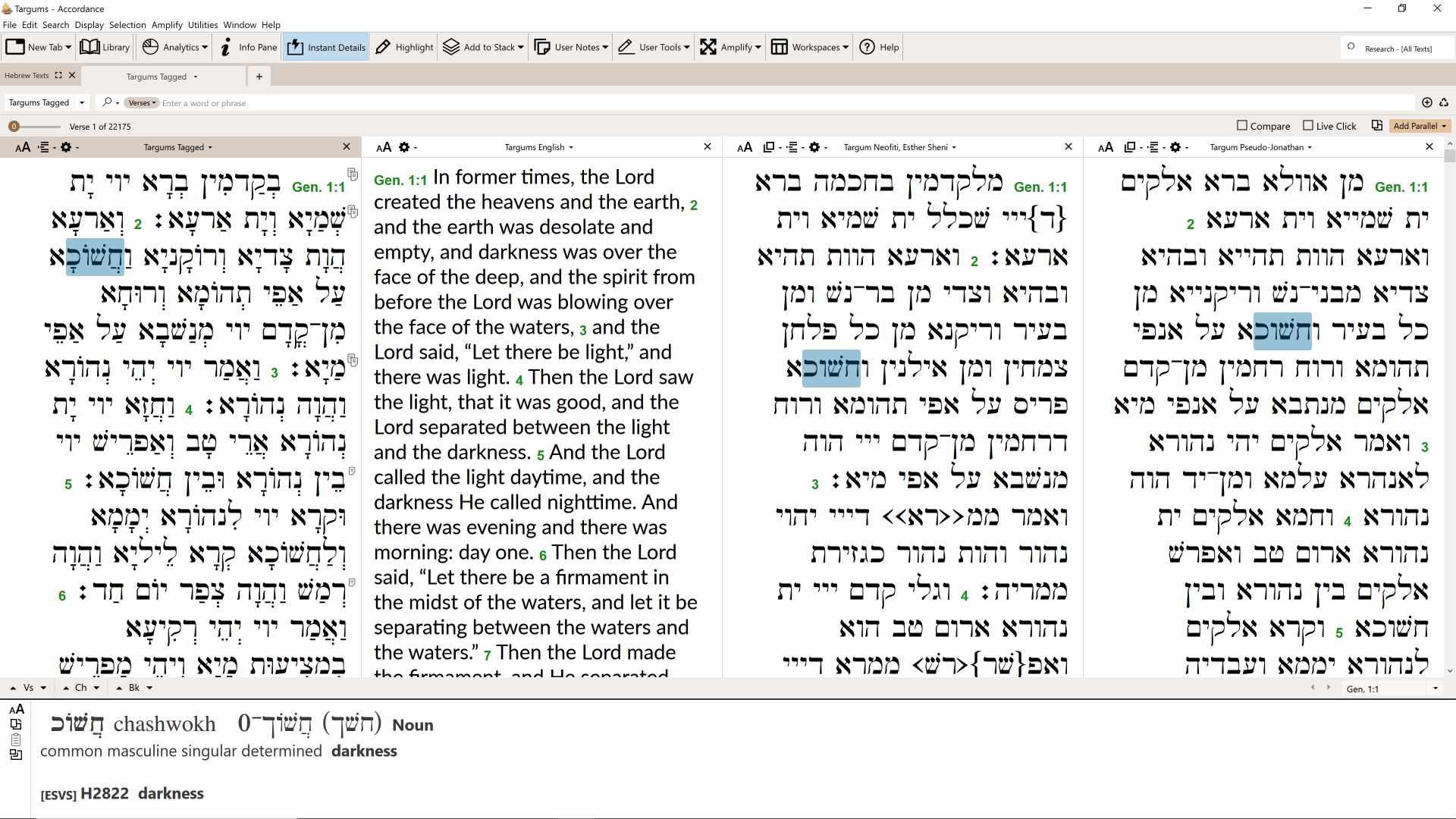

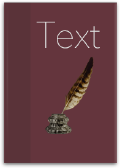
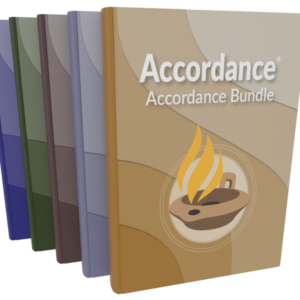
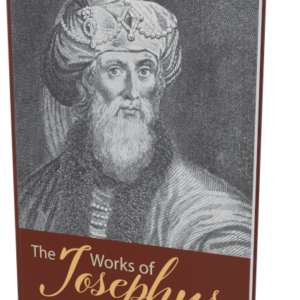
Justin
Very good resources, but currently there are some problems.
Targums Wordmap:
This resource is excellent, and allows in depth cross textual searching, and easy comparison of the Hebrew Bible with various Aramaic translations (Targums).
The wordmap can do nothing without the Targum modules, so if you don’t own the Targum modules you might want to buy Targums Add-on, which includes the wordmap and the Targums.
Targums Tagged errors:
Good recourse, but occasionally the parsing of the Aramaic words is clearly wrong.
E.g. in Gen. 6:4 the unambiguous plural form “עלין” is erroneously parsed as a “peal participle masculine singular”. The same mistake also occurs in Num. 27:21, Num. 34:2, Due. 4:5.
Also in Gen. 23:10 the Aramaic verb “עלי” is correctly parsed as a “Peal participle masculine plural construct,” but in Gen. 23:18 the same verb in the same context is parsed as a “singular” participle.
This is what I found with one verbal root, “עלל”. How many similar mistakes will exist when parsing other verbal roots? Such mistakes in parsing makes grammatical searches inaccurate.
This is so poor I think the whole database will have re-checked for mistakes in parsing.
Targums English Problems:
These English Translations are probably great if you do not know Aramaic.
But if you read the Aramaic alongside the English you will notice occasional errors and inconsistencies in the translations.
The notes are also not accurate. E.g., in Gen. 1:1 the Targum Neofiti English note reads “McNamara looked at the original ms. and saw that the dalet was written with a second hand over an erasure and is not original”. This is not true nor an accurate quote. McNamara did not claim that the Dalet was written over an erasure but only that there was an erasure in this phrase. I looked up the manuscript ( https://digi.vatlib.it/view/MSS_Neofiti.1 ) and one can clearly see an erasure in front of the word “שכלל”, but there is no erasure under the Dalet of the word “דייי”, and the Dalet is written in the original script, not by a second hand.
Most of the Targum English Notes are currently not linked to the Translation! Up until Judges 18:7 the notes display correctly, where after there is a flaw in every note so that they are no longer linked to the English translation.